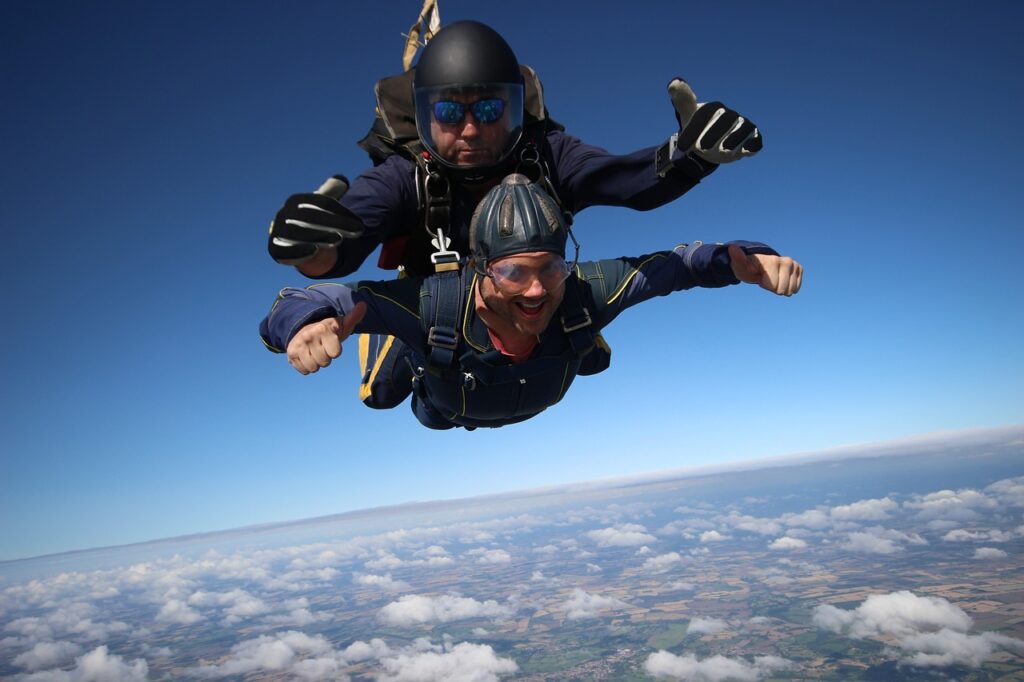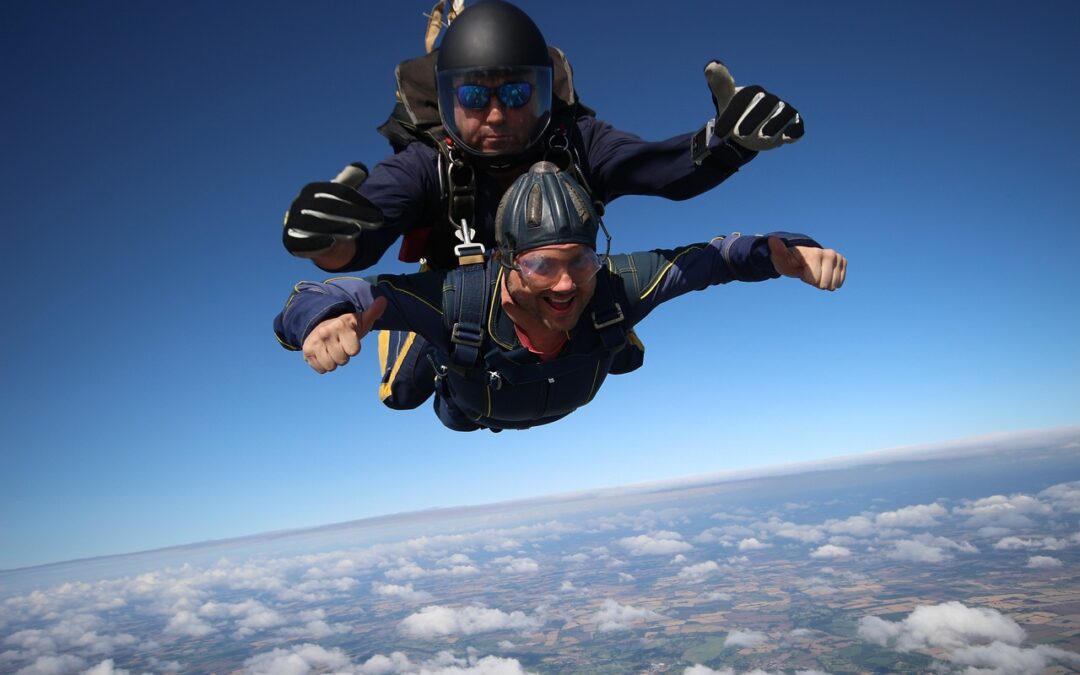Skydiving and CrossFit are two extreme sports requiring physical strength and mental toughness. While physical fitness is crucial, the mental aspect often separates the average from the exceptional in these activities. Zachary Sanns discusses the role of mental toughness in skydiving and CrossFit training and how it can be developed and applied to enhance performance.

The Mental Demands Of Skydiving
Skydiving is not just about jumping out of an aircraft; it is a mental challenge that tests a person’s courage and resolve. The fear of heights, also known as acrophobia, can be overwhelming for many people, but skydivers must overcome this fear to enjoy the sport fully. Additionally, the adrenaline rush experienced during the freefall can be intense and exhilarating, requiring skydivers to stay focused and composed.
Furthermore, the need to make split-second decisions under pressure, such as deploying the parachute at the right altitude and adjusting body position for a safe landing, adds another layer of mental complexity to the sport. Skydivers must trust their training, stay calm under pressure, and make quick, accurate decisions to ensure a safe and enjoyable jump.
CrossFit’s Mental Challenges
CrossFit is renowned for its grueling workouts that physically and mentally push athletes to their limits. The high-intensity nature of CrossFit means that athletes must constantly push through physical discomfort to complete the demanding exercises. Whether lifting heavy weights, performing complex gymnastic movements, or pushing through intense cardio sessions, CrossFit athletes must develop a high level of mental toughness to persevere.
In addition to physical discomfort, CrossFit athletes must also set ambitious goals to keep them motivated and focused. These goals could be anything from improving their performance in a particular exercise to competing in CrossFit competitions. Setting and achieving these goals requires mental fortitude, discipline, and a strong work ethic.
Furthermore, staying focused during challenging workouts is essential for CrossFit athletes to perform at their best. With the clock ticking and the pressure on, athletes must block out distractions and maintain concentration to complete the workout efficiently. This ability to stay focused under pressure is a key component of mental toughness developed through consistent training and practice in CrossFit.
What Is Mental Toughness?
Mental toughness can be defined as the ability to persevere and maintain focus and determination despite obstacles or challenges. In skydiving, this could mean staying calm and collected during a turbulent freefall, while in CrossFit, it could involve pushing through fatigue to complete a grueling workout.
One key aspect of mental toughness is controlling one’s emotions. Fear, anxiety, and doubt can all hinder performance, so athletes must learn to manage these emotions effectively. This can be achieved through techniques such as visualization, where athletes imagine themselves performing successfully, and positive self-talk, where they reinforce their belief in their abilities.
Another important element of mental toughness is resilience. Athletes in both skydiving and CrossFit will face setbacks and failures, but how they respond to these challenges will ultimately determine their success. Resilience is about bouncing back from failure, learning from mistakes, and using setbacks as motivation to improve.
In addition to controlling emotions and building resilience, mental toughness also involves maintaining focus and concentration. In skydiving, a lack of focus could lead to mistakes that could be dangerous, while in CrossFit, it could result in poor form or technique. Athletes must learn to block out distractions and stay fully present in the moment.
How Can Athletes Develop And Improve Their Mental Toughness?
One effective method is through mental skills training. This could involve working with a sports psychologist or coach to develop strategies for managing emotions, building resilience, and improving focus. Visualization, goal setting, and positive self-talk are all techniques that can be used to enhance mental toughness.
Another way to build mental toughness is through exposure to adversity. By putting themselves in challenging situations and pushing through discomfort, athletes can gradually build their resilience and confidence. This could involve increasingly difficult skydiving jumps or tackling tougher CrossFit workouts.
Conclusion
Mental toughness is a crucial component of success in both skydiving and CrossFit. Athletes must learn to control their emotions, build resilience, and maintain focus to perform at their best. By developing these mental skills, athletes can enhance their performance and achieve their goals in these demanding sports.

Recent Comments